Online Directory Business Model Explained
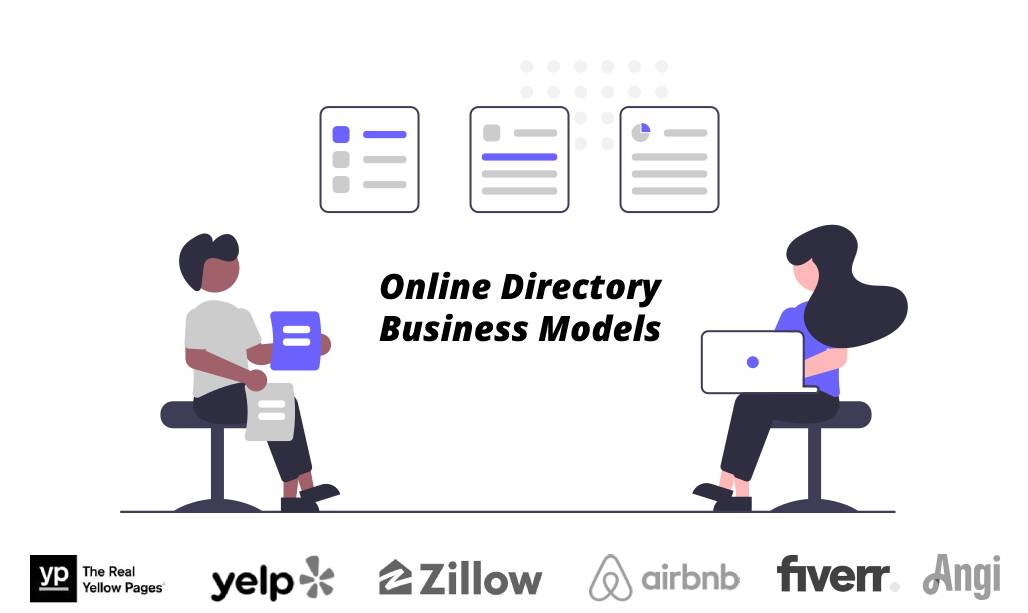
Did you know that Elon Musk, the richest man on the planet, started his Business empire with an Online Directory Business?
He launched Zip2 with Venture Capital from Angel Investors in 1996 and this is how it looked like back then:
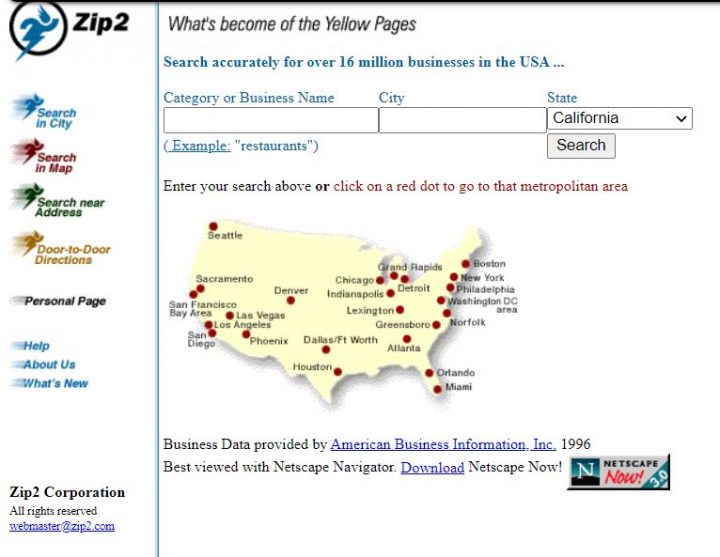
He admitted it was online during the day and he’d work at night to improve its code 7 days a week.
He’d sleep on a couch in the office he and his brother rented in Palo Alto and shower at the YMCA.
The company’s business model was to create a database of physical businesses that could be searched by business name, category, or location.
They’d sell the service to major newspapers and media publishing companies.
After landing contracts with the New York Times, Chicago Tribune, and other major publishers, they sold the company to Compaq, after only 3 years of operations, for $307 million dollars cash in February 1999.
It was definitely easier to make money online back then.
For his 7% stake, Elon received $22 million and that’s the money he used to create PayPal.com.
The rest is history.
Since then, the need for online business directories hasn’t lowered.
In an ever-growing sea of brands, competitors, and products, it can get confusing really quick, when looking for something and getting a gazillion options in return.
We also live in the digital age. And information has never been more accessible.
Online Business Directories still help internet surfers today.
You can swiftly find the companies you’re looking for with a few clicks.
But what if you’re not looking for companies? Looking for shoes? Cars? Places for rent? Talents for Hire?
The most popular old-school directory/classified website, Craiglist, covers a multitude of categories, but newer successful directories focus on verticals.
They are becoming more and more specialized.
The unbundling of Craiglist has carved out niche products and services from a broader horizontal network. That’s the direction to take.
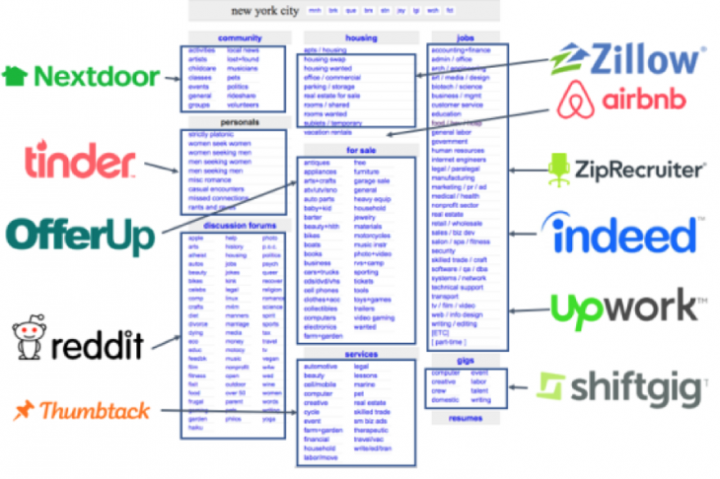
A website that is being unbundled right now is Reddit.
In its subreddits, you can find countless ideas that could lead you to a successful niche, for a new online directory.
Guess what, there is a directory of subreddits that you can use to start looking for niches to unbundle from Reddit.com. It’s called redditlist.com.
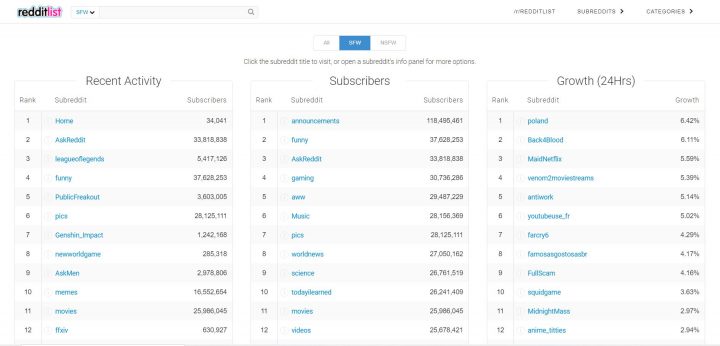
As you can see, Online directories are ubiquitous and can be very profitable and worthwhile to start up.
In this guide, you’re going to learn everything you need to know about them and we’ll show you 12 examples of modern business directory verticals.
Let’s get to it.
What is an online business directory and how does it work?
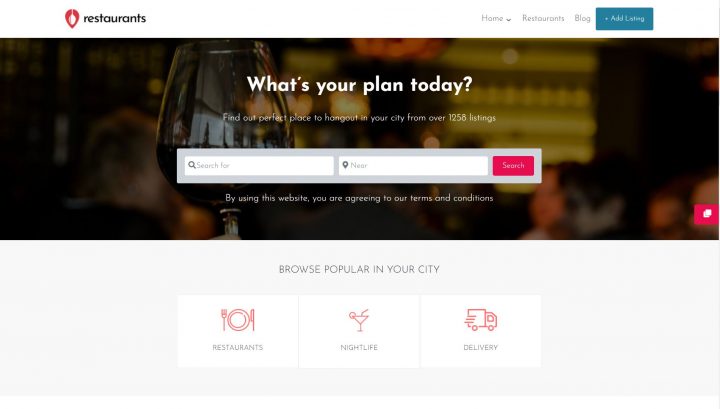
Businesses listed in an online business directory are arranged in categories, subcategories, locations, and other kinds of taxonomies.
So that information can be found quickly and easily.
As a user, you can easily search for information about a business you’re interested in, based on simple and advanced search criteria.
The goal of a directory website is to create as many business profiles as possible.
A reliable directory will gather information and depend on the companies to improve the data themselves, as it’s in their best interest to be presented accurately and honestly.
The company that runs the directory then drives traffic to its pages, mainly through SEO and social outreach for applicants and surfers.
In a nutshell, think of online business directories like the yellow pages or printed local business directories back in the day.
Your go-to “dictionary” for any company, in any niche, for any reason.
How do business directories earn money?
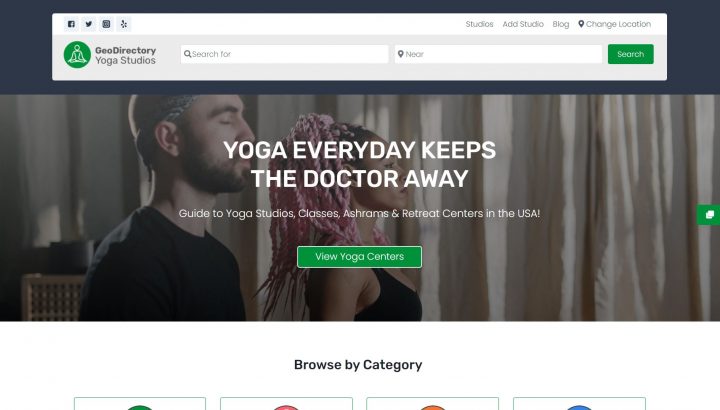
Like all businesses providing value, everything comes at a price.
Online business directories primarily earn their revenue by selling visibility through promoted/featured listings and ad slots on websites.
Depending on their niche and business models, there can be other forms of monetization:
- Affiliate marketing
- Direct sales of goods and services
- Selling leads
- Earning commissions for sales of goods or services promoted (Freelancers, Event Tickets, Rentals)
Promoted/Featured listings
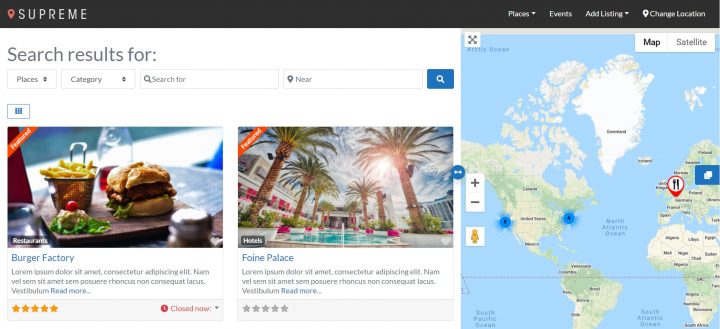
For promoted/featured listings, companies can essentially pay the directory to show their name at the top of search results for their category.
This is usually a recurring revenue business model since by paying a (typically) monthly membership fee, companies can get featured on a said number of listings and categories on the first page, depending on the tier of the plan.
So for instance, an online directory business may choose to tier their membership plans by Bronze, Silver, and Gold.
- Bronze ($30/month)
- Featured listing in 1 category
- 2 uploadable pictures
- Silver ($50/month)
- Featured listings in 3 categories
- 5 uploadable pictures
- Link 1 social media account
- Gold ($100/month)
- Featured listings in 5 categories + 1 rotating Ad slot
- 10 uploadable pictures
- Link 5 social media accounts with active feed updates
And so on.
Fixed ad slots on websites
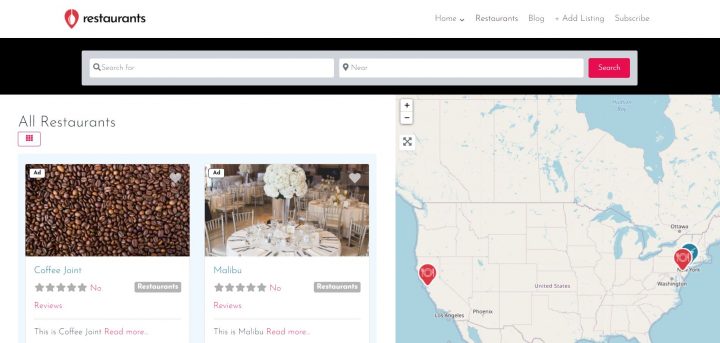
Secondly, businesses can also pay for ad slots on the directory website if they have a lot of organic traffic.
The transaction here is simple.
For a flat rate, a company can reserve a spot on, say, the top right blank space of the website to place an ad for their business for users to see.
The other method of charging ad slots is by CPM (cost per 1000 impressions) or CPC (cost per click).
That means that you’ll only be charged if your positioned ad on the directory website gets 1000 impressions, or, a user clicks on the ad because they’re interested.
Monetizing your online directory is definitely worthwhile.
There are top directories out there raking in millions per year at a stupid high-profit margin.
That’s because of the popularity and organic traffic they were able to accrue.
How do I set up an online business directory?
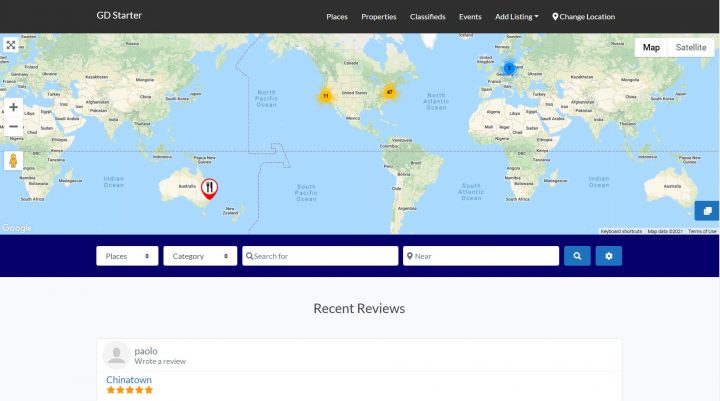
It’s not rocket science, we can tell you that much.
In fact, Content Management Systems like WordPress have made it ridiculously easy.
If you want to create an online business directory, you can easily install a special Directory Plugin for WordPress like GeoDirectory for as low as $199 USD a Year.
No coding.
No hiring expensive programmers.
It’s there: done and ready and can be set up in minutes.
If that isn’t an option, like if you’re trying to stand out, but don’t have the technical knowledge to do so.
Then there are professional freelancers available on platforms like geodirectryexperts.com (alternatively Upwork or Fiverr) who can take care of the programming aspect.
Just note that although setting it up is fairly easy, running an online business directory isn’t a walk in the park.
Here are some stakeholders to keep in mind when building out the strategy and structure for growing your directory business.
- Administrator: the owner of the website with full control over the entire website—every single feature.
- Business Owners/Vendors: the customers of online business directories: they post business listings on the directories and often pay for top listing positions and ad placements.
- Business listing: the listing of a company, service, or product posted by a vendor or on behalf of the vendor by the admin team.
- Category/subcategory: an advanced and convenient categorization structure that makes filtering through results easier and more relevant.
- Clients/users: the people who visit an online business directory to find a business of interest and obtain the right contact information to reach out and learn more.
The most important part of running an Online Directory is definitely the marketing aspect. If you want to succeed. You must master how to boost your directory traffic with SEO or Social media marketing. Those who master both have a 100% success rate guaranteed.
How do I market an online business directory website?
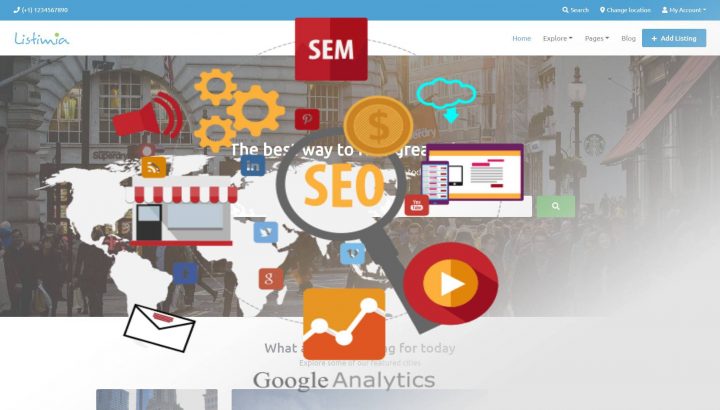
Marketing a business directory website isn’t the hardest thing to do, but consistency is key.
Ideally, you want to have a good amount of site traffic so that your vendors have a legitimate incentive to pay you a subscription fee to use your platform and audience.
In order to attract that traffic to your website, you need to have a large number of business listings that help users find what they’re looking for.
Alternatively, you need excellent content tailored around the niche of your directory.
That takes work.
It’s easy to want to rush things to get rich as fast as possible.
However, slapping your pretty membership structure on the front page for promoted listings and ad placements on a website with no traffic… It won’t get you any registrations soon.
Keeping website visitors engaged is a difficult task when you need to strike a balance between the number of business listings and the number of visitors.
As a result, there is a good chance that the online business directories won’t attract both vendors and users if the promotion isn’t done right.
That’s why you’ll need a smart strategy to market a business directory website.
- Fill out business listings yourself to begin—the Internet has a lot of information available. If you’re too busy to input all the data yourself, hire a data entry operator or invest in a data-scraping tool.
- Invite all business owners (whose listings you have created) to claim and verify their listings. Along with verification, ask them if they would like the listing removed or if some changes should be made.
Never forget to let them know that it’s completely free, a promotional plus, and that you appreciate presenting them on your website.
They’re the reason your website exists, so be an honest suck-up if you have to.
Besides, no one minds a free listing.
In fact, it is likely that some of them will contact you to suggest edits to their listing. Establish a relationship with them.
- As soon as you have a reasonable number of businesses listed in the business directory, focus on attracting traffic to the directory by using strategies such as:
- Search engine optimization
- Online marketing using social networks
- Sending email messages
- Paid advertisements
- Business directories can at times be a little boring. Consider adding sections such as:
- Your industry’s latest news.
- Videos
- Tips, tricks, advice.
- A community of consumers of that industry’s products.
Such content, if keyword-optimized, can also help your business directory win points with search engines so you can attract organic traffic and build site authority.
Since users like to search for that kind of stuff, you’d be readily available with the answers (so search engines will push your content to the top, and with that, comes great exposure to your site).
As soon as your directory will start generating enough traffic, monetizing it will become a lot easier.
It could take a while for the right balance between visitors to the website and registered vendors to appear.
A large number of online business directories fail because they want to generate revenue from day one.
Alas, it doesn’t happen so quickly with new brands.
If you already have an audience instead, monetizing it with a directory will be a lot easier.
What are the types of online business directories?
1 Business Directory Website
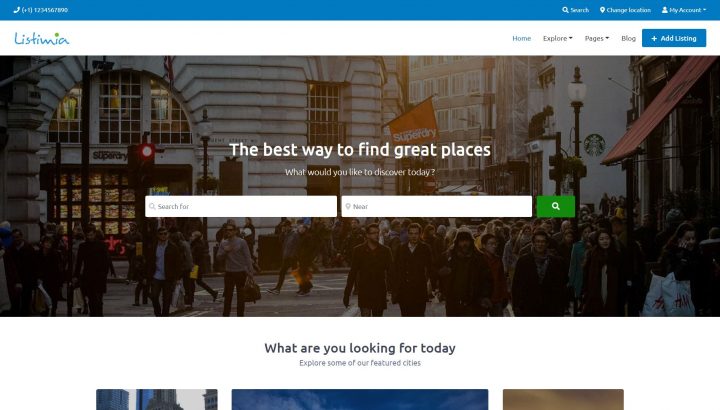
Let’s start with the most traditional type of online business directory.
The go-to industry example is Yellow Pages.
This list contains a range of niche businesses within a certain geographic area. Usually, businesses are grouped by type, location, activity, and size.
The location, phone number, type of products or services, number of employees, serving area, and professional affiliations can all be found in a business directory.
Users can easily find local businesses, products, or services in a targeted manner.
A business listing website is one of the best ways to increase online visibility.
Businesses will also be able to increase their search rankings and authority with search engines with a listing in a top online business directory.
As a result, potential customers have a greater chance of finding them online.
If your site has good traffic, that’s why it’s easy to sell premium listings to business owners.
The Yellow Pages model is also subject to unbundling. Today, directories about verticals are more attractive than generic online directories.
To build a Business Directory website, you can easily start using the Listimia theme for GeoDirectory. Read more about that here.
2 Real Estate Listings Portals
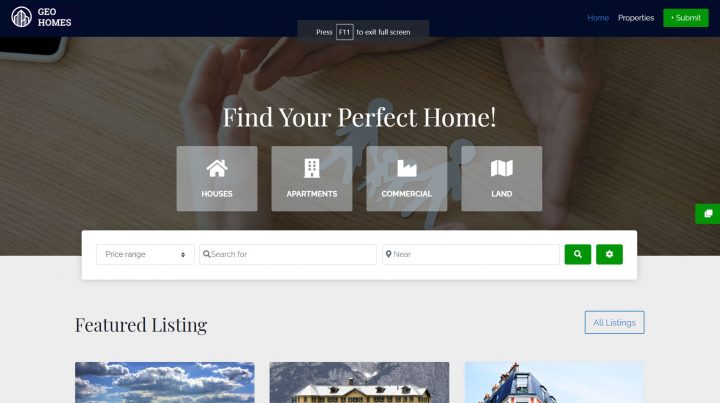
Many people visit the internet when they want to find the perfect property today.
Therefore, having a great real estate web directory is critical for real estate agents or service providers.
Think Zillow.com.
Most real estate directories make money offering services for both homebuyers and sellers, like featured listings and real estate agent ads.
They also sell leads to real estate professionals and homeowners (especially for rentals).
Offering real estate agents high-quality advertising and marketing services (customized websites).
They may also offer mortgage services as partners or affiliates.
In this market, there are still big opportunities in hyperlocal niches.
If you wish to start a Real Estate Listings Directory, you can use the GeoDirectory Real Estate template that can be installed with 1 click in less than 2 minutes. Read more about the GeoDirectory Real Estate Theme here.
3 Short Terms Rentals
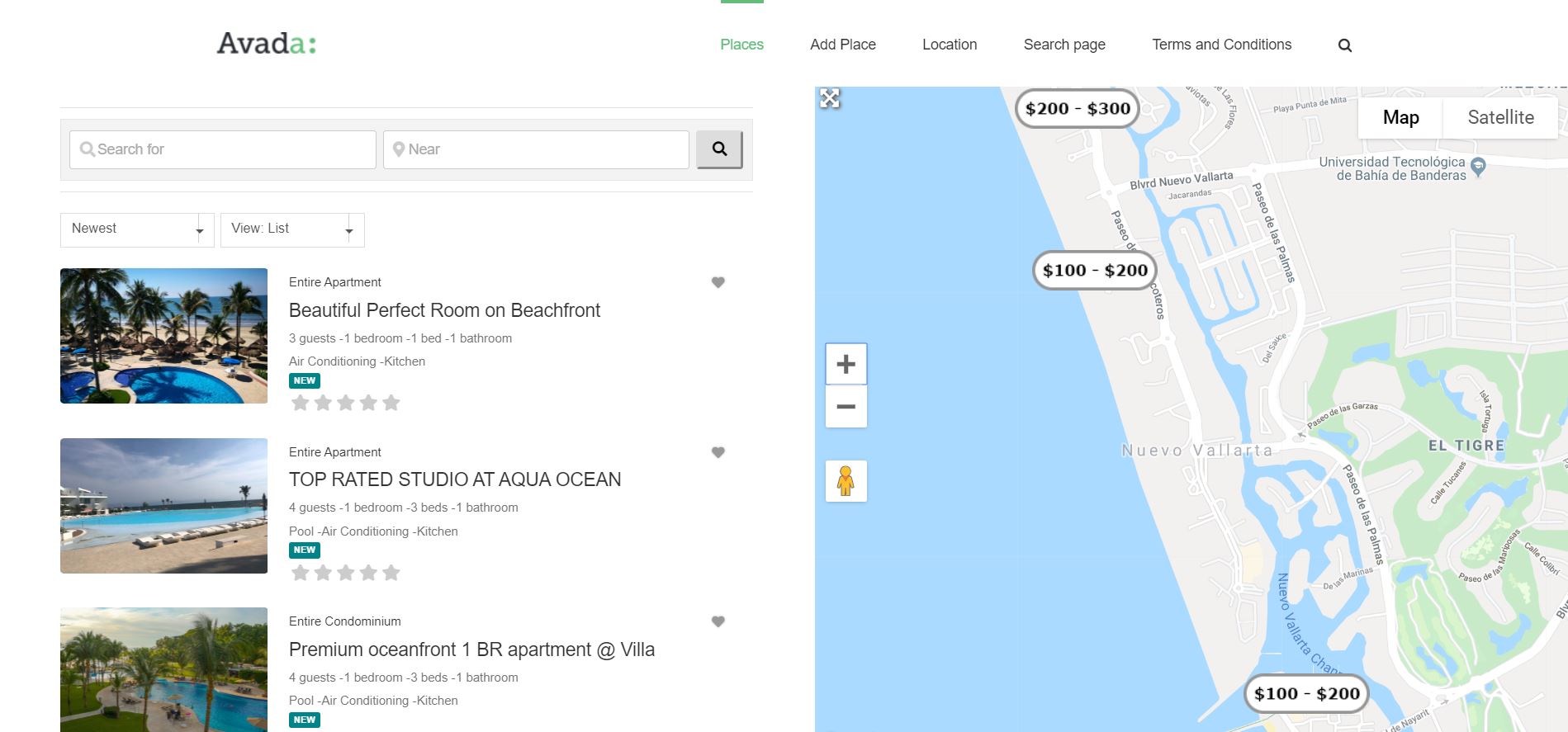
To go even more niche, renting housing spaces fall under the real estate umbrella.
You can rent a hotel room through Booking.com or Expedia.
Rooms, apartments, and houses for rent with Airbnb and VRBO, and even office space for rent with WeWork.
4 Job boards
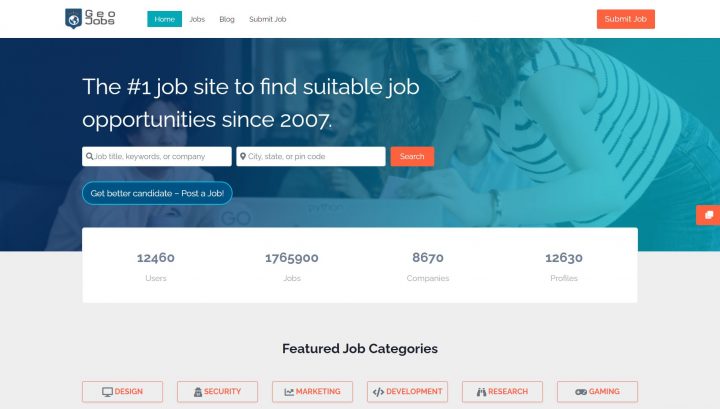
Companies like Indeed, Monster, Glassdoor, and Ziprecruiter found success by creating a job listing catered to unemployed folk looking for job opportunities.
Their revenue comes from corporations buying job postings.
Don’t be intimidated by the industry giants.
New job boards are flourishing in the post/covid era. Remoteok.io, which has attracted 10,000 registered remote worker profiles in one year, has provided remote jobs to thousands of people globally.
Starting a Job Board Directory is simple with GeoDirectory and the 1 click demo install WP Job Board Theme provided.
5 Freelancers
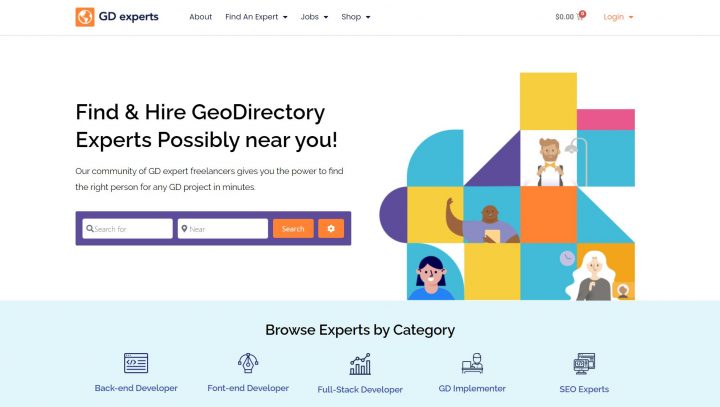
As it turns out, there’s a great demand for quick talent that comes with no conditions and logistics.
Pay a professional, get the job done, and keep them condition-free for as long as you need.
Fiverr, Upwork, and Codeable (for WordPress) offer a vast network of outsourceable talent through text search and advanced filters.
Examples are by service required, country (so you can work with someone who knows your culture), niche, seller level (for more premium services), and more.
These companies make money by taking a cut of the transactions between buyers and sellers by directing them to the right talent and providing insights to aid decision-making.
6 Home Service Providers
Generally, they make money by charging companies and professionals to list their services on the site.
Additionally, they often sell leads, tools for professionals, and even furniture.
The difference here from Freelancing directories is that these businesses are more hands-on and local, while freelancers tend to be remote.
So think Angie, Thumbtack, Houzz, and HomeAdvisor.
7 Events Directories
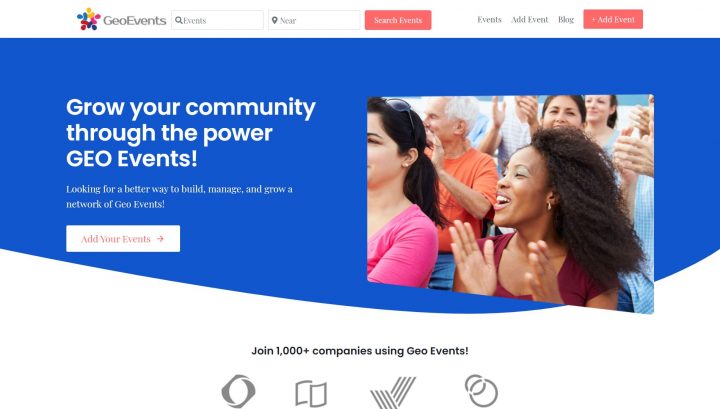
All things events.
If there’s a social event happening locally or at a concert, these companies allow hosts and vendors to sell tickets to those events to interested audiences.
To keep the lights on, they’ll take a cut to ticket buyers for compensation for enabling their concert dreams.
The common names in the industry are Eventbrite and Ticketmaster.
However, also businesses like Meetup.com should be considered an Event Directory, where you can connect with people of similar interests.
If you’re curious, group organizers pay Meetup a monthly fee to run their groups and events.
8 Doctor Directories

Using these directories, patients can connect with doctors.
Companies in this sector mainly make their profits by charging doctors for listings themselves.
Another option is to offer services to health professionals so that they can more easily communicate with their patients, nurses, and other teams.
We’re talking Webmd care, HealthGrades, and Doximity.
9 Travel and Experiences (Restaurants/Hotels/Trips)

Travel and experience directories help users connect with places before they get there.
They facilitate the decision-making process for the next trip by displaying user reviews, selling ads, and promoting featured listings.
Of course, they take a commission from bookings and reservations.
We’ve all probably heard or even used examples like Yelp.com and Tripadvisor.com.
However, there are also successful new players in this niche like Nomadlist.com
You can create a Yelp Clone using our Whoop Theme or a WordPress Restaurant directory using our Geo Restaurants 1-click demo import template.
10 Software/Apps Directory
Some of these directories sell ads, featured listings, and recommendations.
They’re the middlemen between a tech vendor and a client looking for a software service.
With the right filters, suggestions are provided.
Many software companies pay for listings and work for organic positions (by fostering good reviews) on these directories, like Capterra, to gain maximum exposure and acquire more clients.
G2 is another example but it has an interesting business model since it sells data instead of products back to the SAAS owners that are being reviewed on their site.
11 Generic Classifieds
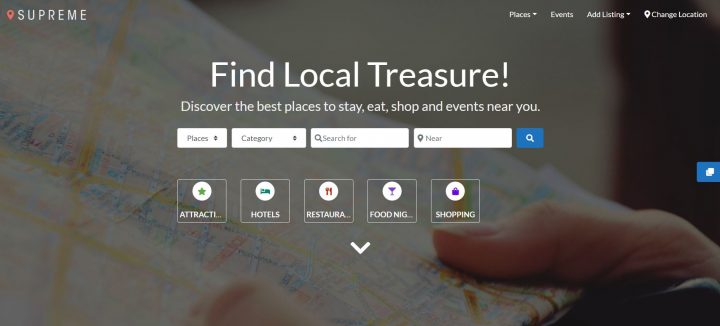
These are directory websites that enable a private individual to sell used items.
This business model is more environment-friendly and cost-savvy for individuals on a low budget.
The best examples are eBay, which gets a % of each sale.
Other sites like Craigslist, though, may model their revenue income as pay-per-listing.
For a generic Classifieds portal, the GeoDirectory Supreme Directory theme will be a great fit and provide a great WordPress Classifieds Theme. You can install a demo in less than 2 minutes.
12 Cars
Companies like Autotrader or cars.com are online directories that help users buy and sell cars.
Simple as that.
They typically charge users to submit their listings in exchange for exposure and potential buyers.
There is also usually an option to sell ads to try scaling or fast-tracking a sale.
Conclusion
There are many more options, you just need to look for them and be disruptive.
The directories business model isn’t getting any smaller.
And with rising competition, they’ll only be more useful.
But for every online business, you need an audience.
Either you already got one or you’re growing one with SEO and marketing.
It can’t happen without it.
So, what Online Directory are you thinking to start?
Newsletter - Stay Updated!
Get the latest news, tips, and exclusive content directly in your inbox.